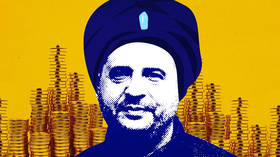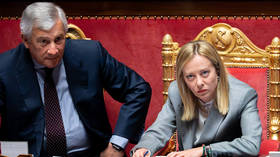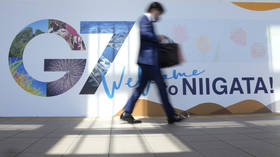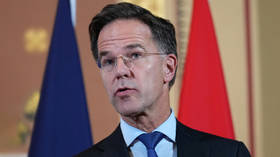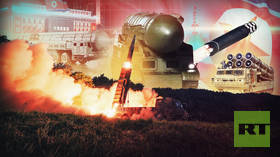‘Can Pepsi, Coke’: Russian MP asks govt to ban US sodas as counter-sanction measure
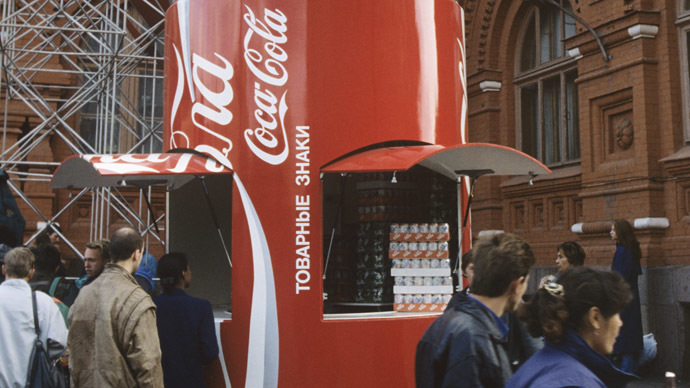
The head of Russia’s Party of Pensioners is urging sanctions against the Coca-Cola and PepsiCo claiming the soda giants are major sponsors of anti-Russian politicians in US and that the move would boost domestic producers of soft drinks.
“In support of the president’s and government’s actions regarding the countersanctions we suggest restricting imports of products made by the Coca-Cola and PepsiCo companies that are the main sponsors of respectively the Republican and Democratic parties of the United States, the active supporters of prolonged sanctions against the Russian Federation,” Igor Zotov wrote in a letter to the Russian prime minister, quoted by the Izvestia daily.
Zotov, an MP in the State Duma representing the Fair Russia Party, noted that according to the information received from open sources the US soda is extremely harmful for human health and therefore its imports are very damaging for the health of the Russian nation.
He added that under the ongoing import-replacement program it would be logical to legislatively oblige all soft drink producers selling their products within Russia to use only Russian-made ingredients certified by Russian state agencies. Under this condition, the US soda makers could continue their presence on the Russian markets, Zotov wrote in the letter.
The last suggestion drew bewildered comment from the head of the Union of Soft Drink Producers, Dmitry Petrov, who told Izvestia that Coke and Pepsi sold in Russia were made from Russian water and sugar, but the main flavor came from imported concentrates with a secret composition.
Petrov added that the ban could lead to a deficit of soft drinks in Russia because Coke and Pepsi together sold about 40 percent of products on this market. Another negative effect would be a decrease in tax revenue and a hike in unemployment, the lobbyist said.
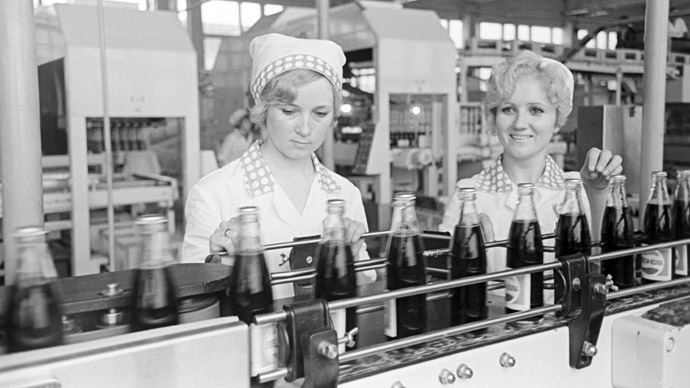
According to Russian commercial database SPARK the overall revenue of Coca-Cola’s Russian branch was 67 billion rubles in 2013 and the company paid 404 million rubles in income tax from this sum ($1.2 billion and 7.34 million respectively at current rate). The figures for PepsiCo’s Russian branch are 80 billion and 158 million rubles ($1.45 billion and $2.87 million at current rate). Coca-Cola employs 11,000 workers in Russia and PepsiCo employs 23,000.
PepsiCo entered the Russian markets much earlier than Coca-Cola – in 1971, back in Soviet times. The drinks produced by this company were scarce at first, but gained more popularity as production was increased ahead of the 1980 Moscow Olympics. After the fall of Communism, PepsiCo’s advertising slogan ‘Generation Pepsi’ became so well-known it became eponymous with young people who had not got the taste for the Socialist lifestyle.
READ MORE: Foreign booze, tobacco, soda in Communists’ sanction sights ‘to protect Russian genes’
Coca-Cola first came to Russia before the 1980 Olympics but only produced and sold its orange drink Fanta until the Perestroika years under Gorbachev in the late-80s.
This is not the first time foreign soda producers have been the target of Russian politicians. Last August the Communist Party asked the government to impose sanctions on tobacco, alcohol and carbonated drinks from all countries that support sanctions against Russia, saying that such move would be in the interests of national security. Before that the Communists had sought an additional tax on sugar-containing drinks quoting concern over national health.



